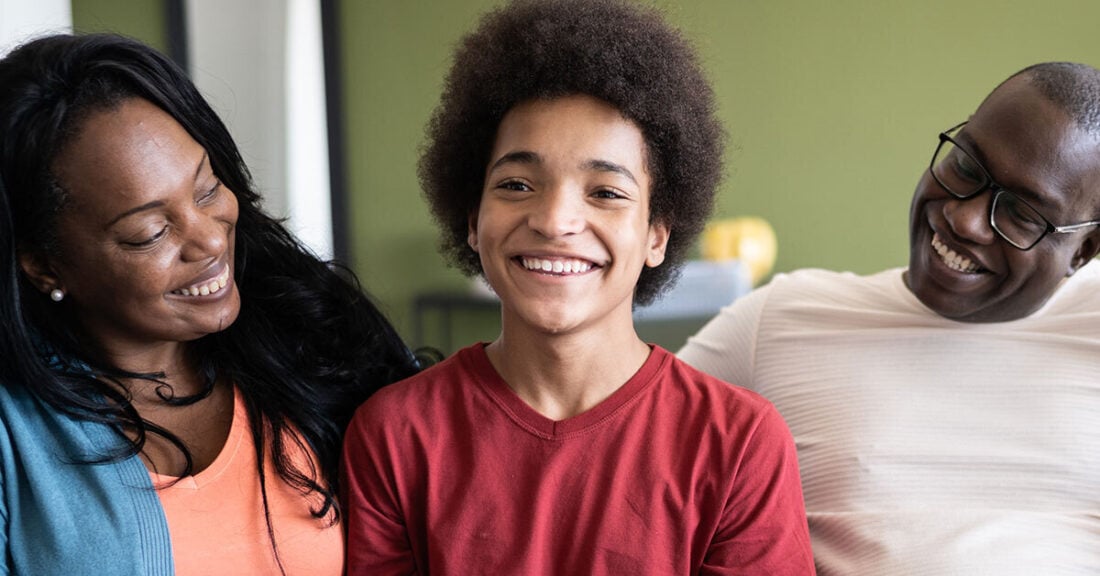Training Opportunity: Family-Engaged Case Planning in Youth Probation

Local juvenile probation departments can apply now for in-person and virtual training to implement the family-engaged case planning model in youth probation. The interest form is due on May 28.
Under the model, probation officers work in partnership with young people and their families to craft individualized goals and update and expand upon those goals as successes and challenges arise. Throughout the process, they build connections with community-based support and services. This approach and the larger vision for transforming juvenile probation align with what research shows about youth development and what works to foster long-term behavior change and safety.
“Probation departments across the country are increasingly acknowledging the need to partner with youth and families more authentically,” said Steve Bishop, the Annie E. Casey Foundation’s associate director for probation and system transformation. “Implementing the family-engaged case planning model is a direct and powerful way to turn talk into action.”
Five jurisdictions completed the training in 2024:
- St. Louis County, Missouri;
- Franklin County (Columbus), Ohio;
- Cook County (Chicago), Illinois;
- Riverside, California; and
- Maine.
Express Interest in this Training Opportunity
About the Training
The training is designed for teams of juvenile probation professionals and their community partners. For those interested in continuing education credits, it is approved by the American Probation and Parole Association for 20 contact hours.
The course consists of five modules — one held virtually and four delivered in person. Modules will run between October and November 2025, followed by local implementation planning and ongoing collaboration and coaching throughout 2026.
The curriculum covers the particulars of the family-engaged case planning model and reflects the contributions of practitioners, family members and young people. It includes:
- identifying a young person’s circle of care;
- elevating a young person’s strengths and aspirations;
- connecting with community-based support and services;
- ensuring that goals are relevant, actionable and crafted collaboratively;
- celebrating success; and
- problem-solving and pivoting.
Participating jurisdictions receive the following, free of charge:
- approximately 30 hours of family-engaged case planning training, delivered by Harley Consulting Group and a team of trainers funded by the Casey Foundation;
- tools and resources to support the implementation of family-engaged case planning;
- follow-up coaching and support (a minimum of eight hours from a technical assistance provider over a year); and
- access to a network of jurisdictions also working on transforming their local juvenile justice systems.
Those seeking training on probation transformation more broadly or as a basis for family-engaged case planning should consider Casey’s online probation transformation training series.
Timeline
Estimated timeline (subject to change):
- May 28 — deadline for submission of interest form
- June 12 — jurisdictions learn if they have been selected
- July 18 — site team roster is finalized
- July (TBD) — pre-launch session (virtual)
- October (TBD) — module 1 (virtual)
- Nov. 4–7 — modules 2–5 (in-person in Baltimore)
- December (TBD) — post-course planning session (virtual)
- March 31, 2026 — site work plans due
Eligibility Criteria and Expectations for Participating Teams
Any probation department can apply for this opportunity. The jurisdiction must be able to establish a team with the following composition:
- Six individuals, including:
- one high-level probation administrator with the authority to make policy and practice changes;
- three probation practitioners (two probation officers and a supervisor or vice versa); and
- two community partners (a young person with prior experience on probation, a family member of a young person with prior experience on probation and/or a community-based organization or leader who works directly with, and on behalf of, young people on probation).
- The team members should:
- possess a strong orientation to equity and well-being for young people and families who face the steepest barriers to success;
- have a willingness to build partnerships with young people, family members and community members; and
- be action-oriented, bold and able to use influence and leadership to make changes in their system.
- Team members must be able to complete Casey’s online probation transformation training series between July and September, prior to the launch of the family-engaged case planning training course. The estimated time required to complete the full series is 12 hours per individual, though individual pacing may vary.
- Team members attend, actively participate in and complete all required assignments for the family-engaged case planning training course between October and November.
- The jurisdiction (team members and agency leadership) intends to implement family-engaged case planning following the training. Given that each jurisdiction will need to plan and tailor what works best for it, sites are not expected to adopt the full family-engaged case planning model immediately following the training. However, it is expected that jurisdictions create a detailed work plan for their local family case planning transformation, including the steps and timeline needed to get there. Coaching and support from national trainers will be available to develop the work plan.
- The jurisdiction’s team participates in post-training cross-site update calls.
- The jurisdiction covers travel and lodging costs for all probation team members for the Nov. 4–7 Baltimore-based modules. Casey will cover travel costs for community team members.
- The jurisdiction provides stipends or other ways to honor the time and expertise of community partners on the team during the work planning and implementation process. Casey will provide stipends to community team members during the training.
“Family-engaged case planning is practical,” said Tymesha Buckner-Dobynes, director of delinquency services at the St. Louis County Family Court. “Treating families as active partners in the case management process builds stronger support networks for young people on probation.”
Express Interest in This Training Opportunity
See a Preview of the Application Questions






